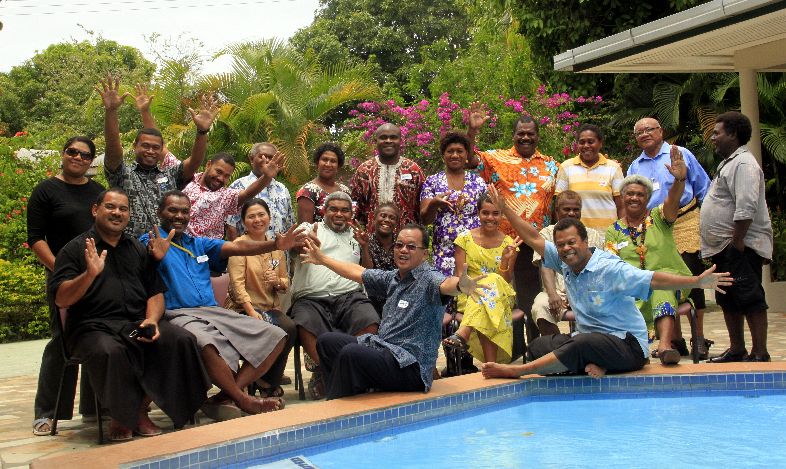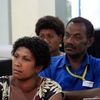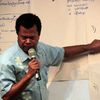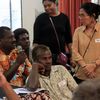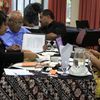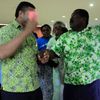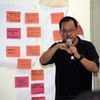NADI, FIJI – Eighteen participants from participating NGOs, communities and selected policy-makers from the South Pacific countries of Fiji, Tonga, and Solomon Islands attended the workshop on “Advancing Participatory Governance Through Accountable Leadership”. The workshop was designed and facilitated by ANSA-EAP personnel.
The two-day workshop, conducted on November 14 and 15, 2012 in the Best Western Hexagon International Hotel in Nadi, Fiji, aimed at enhancing the capacities of the participants to lead and facilitate increased participatory processes internally (i.e. local communities) as well as externally (i.e. policy engagement). The activity was designed for the participants to:
- Gain a shared understanding of the current governance and leadership situations, including
- the current governance situation in terms of transparency, accountability, and participation, and
- the role of present leadership practices vis-à-vis the current governance situation (and vice-versa);
- Create a shared vision of an ideal governance situation inspired by an accountable leadership practice;
- Generate strategies in bridging the gaps between the current situation and the participants’ ideal vision; and
- Formulate a 100-day action plan addressing priority issues and concerns.
Some highlights of the workshop included a self-survey on Leadership Practice & Participatory Governance (a self-assessment tool created by ANSA-EAP to measure one’s leadership practice in the context of the good governance principles of transparency, accountability, and participation); intensive analysis of leadership issues including the “diminishing role” of traditional leadership culture; and discussions on the “culture of silence” that hinders citizen participation in governance processes. The workshop was capped with a learning activity that dug deep into the participants’ thinking and practice of accountable leadership. It focused on the leader’s responsibility to deliver results, promote efficient work, communicate and facilitate, build community and strengthen relationships, and conduct one’s self with integrity.
The workshop was organized and hosted by The Foundation of the Peoples of the South Pacific International (FSPI) as part of its commitment to enhance participatory governance in the participating countries, with emphasis on the role of local leaders and their core purpose and responsibilities in such a process.
The initiative is in line with FSPI’s governance programme that “evolved from efforts to address the critical governance issues facing the Pacific community and promote the development of good governance from community level in the region.” FSPI currently works in 10 Pacific Region countries and/or territories, e.g. Timor Leste, Palau, Papua New Guinea, Solomon Islands, Vanuatu, Fiji, Tuvalu, Tonga, Samoa, and Kiribati. [For more information about FSPI, please follow this link: http://www.fspi.org.fj/]
The project is supported by the CIVICUS Participatory Governance project, which aims to promote participatory governance practices at the local and national level and contribute to increased accountability and responsiveness of leaders and state institutions to citizens in the Pacific Region, thereby promoting poverty reduction and the achievement of key human development goals.
CIVICUS: World Alliance for Citizen Participation is an international alliance of members and partners which constitutes an influential network of organisations at the local, national, regional and international levels, and spans the spectrum of civil society. [For more information about CIVICUS, please follow this link: https://www.civicus.org/]
ANSA-EAP’s Dr. Angelita Gregorio-Medel, executive director, and Adelfo V. Briones, learning specialist, designed and facilitated the workshop.

